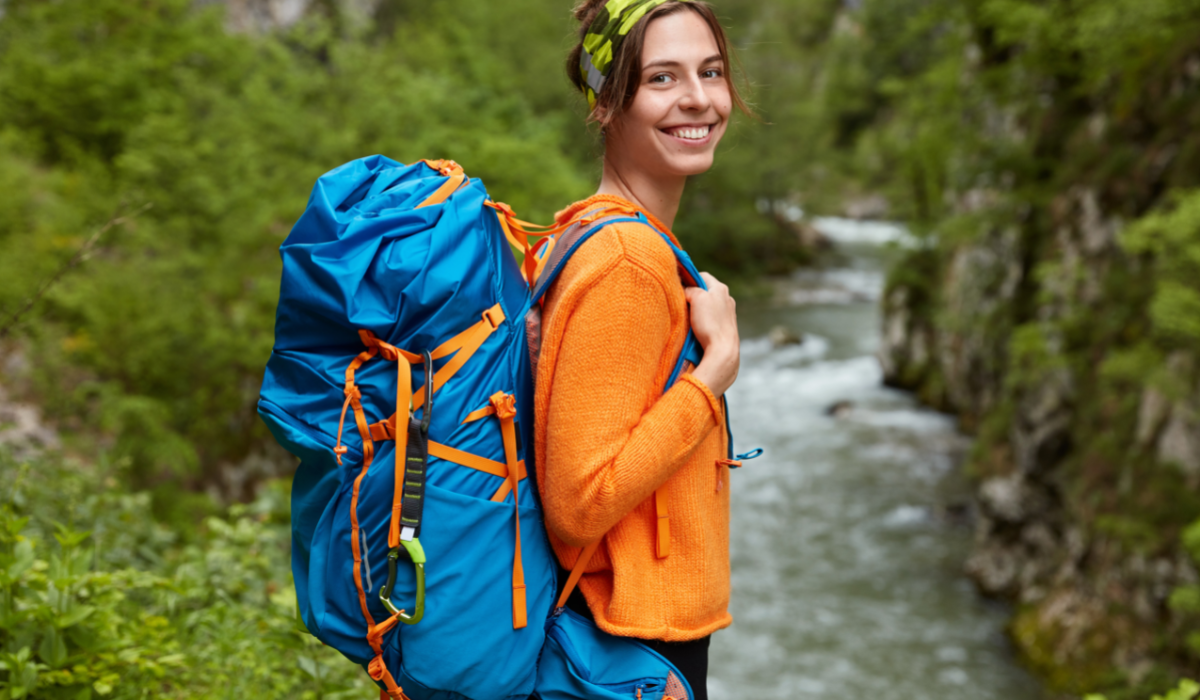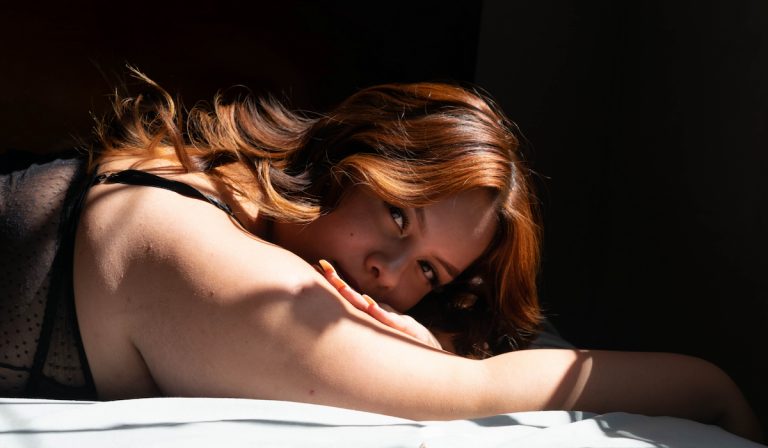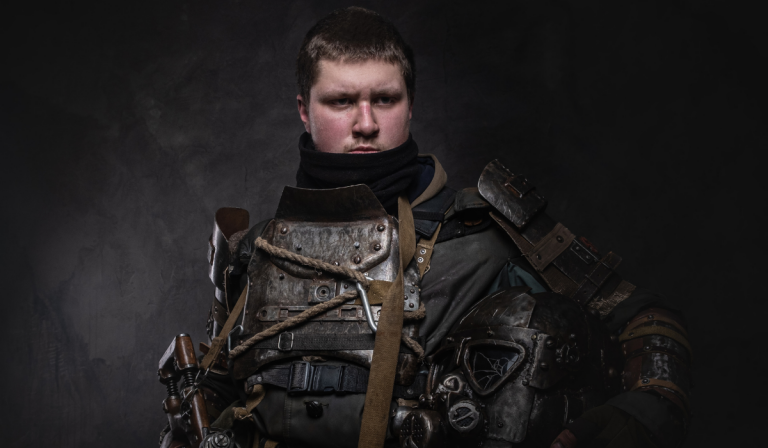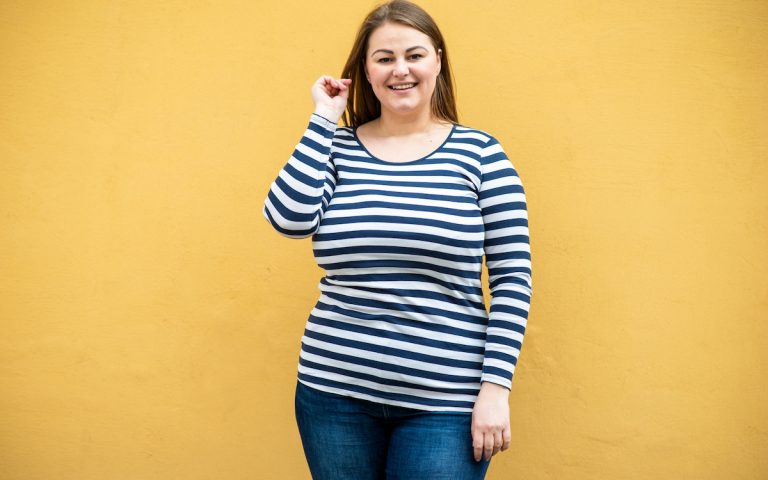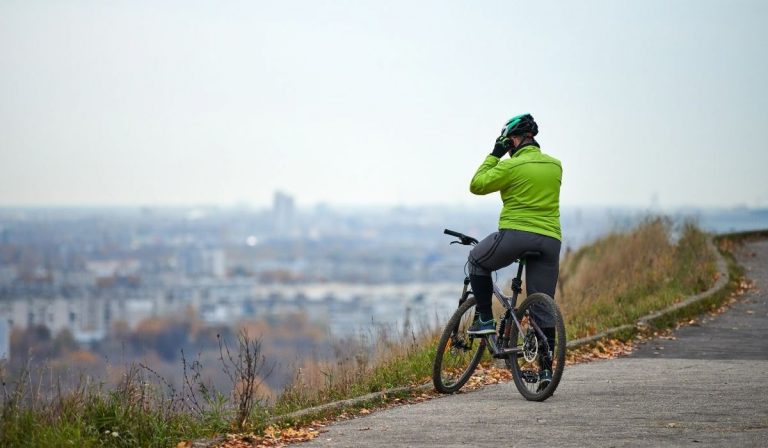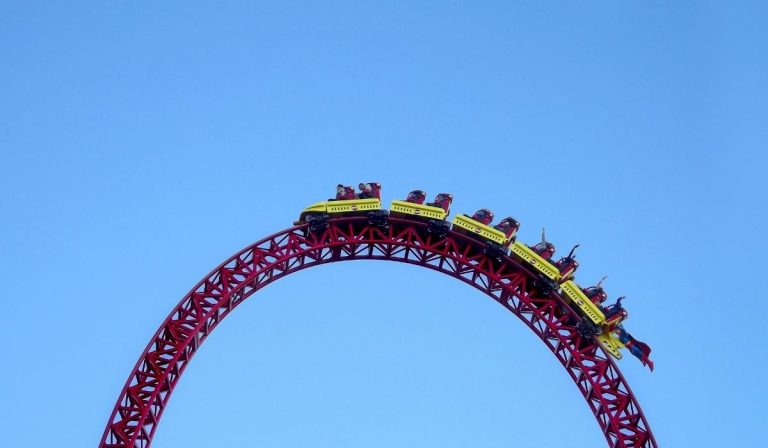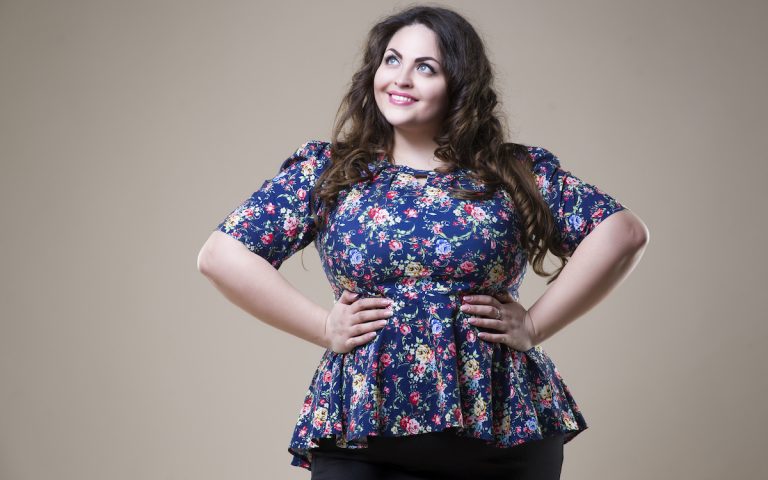Plus-Size Backpacking Gear
Larger people who are also outdoor lovers typically have a harder time finding gear that fits. Traveling in the wrong gear on a several-mile hike can be unbearably painful.
In addition, ill-fitting gear affects performance and endurance, making hikes and camping much harder than it already is.
Finding ways to cover the gap between what you need and what’s available is a big challenge for plus-size hikers. You’re fine if you’re just going on a normal nature walk and only need a backpack and the clothes on your back.
When you get into more technical gear, however, you need something more specific to your body and body type.
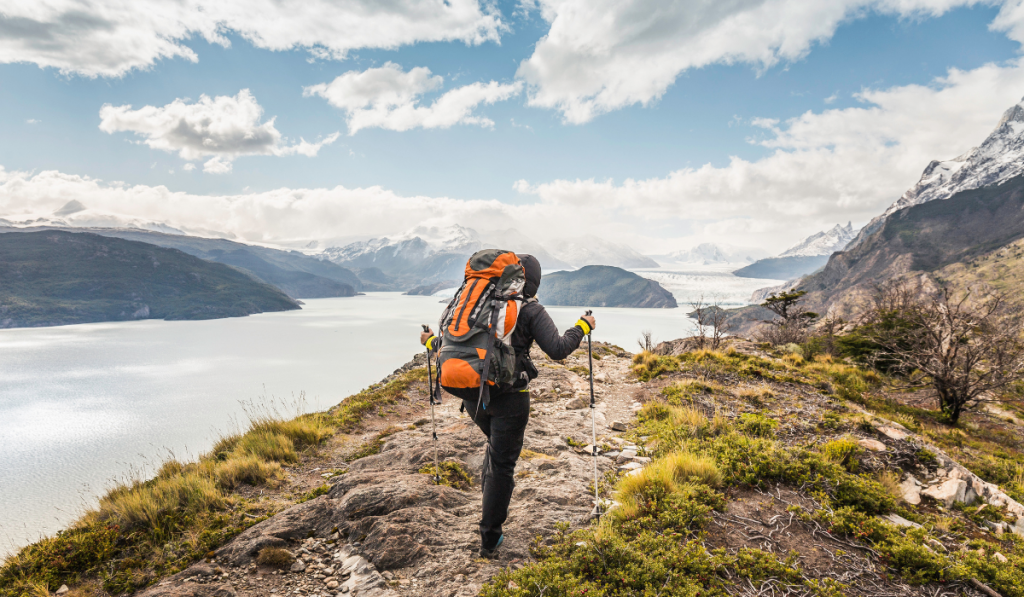
Anything above casual outdoor walks requires technical gear to protect yourself from injury, carry weight efficiently, and get you to your destination.
Unfortunately, people spend thousands of dollars on backpacking gear, so it’s frustrating to have to buy something that doesn’t fit quite right.
What you need is equipment that can support you and keep up with however fast you’re going or however high you’re climbing. If you’re larger and need some help finding the best backpacking gear, you’re in the right place! Here are some of the best options to outfit yourself correctly and stay on the trail.
The Healthy Hiking Basics
Whether a seasoned pro or a hiking novice, you need basic gear to keep you safe and moving.
Sure, anyone can hit the trail in a pair of sneakers and shorts, but, typically, thousands of hours go into designing and manufacturing backpacking gear. Companies go the extra mile to make it lightweight and durable.
If you’re starting to get outdoors more and looking for better gear, here’s where you should start.
Trekking Poles
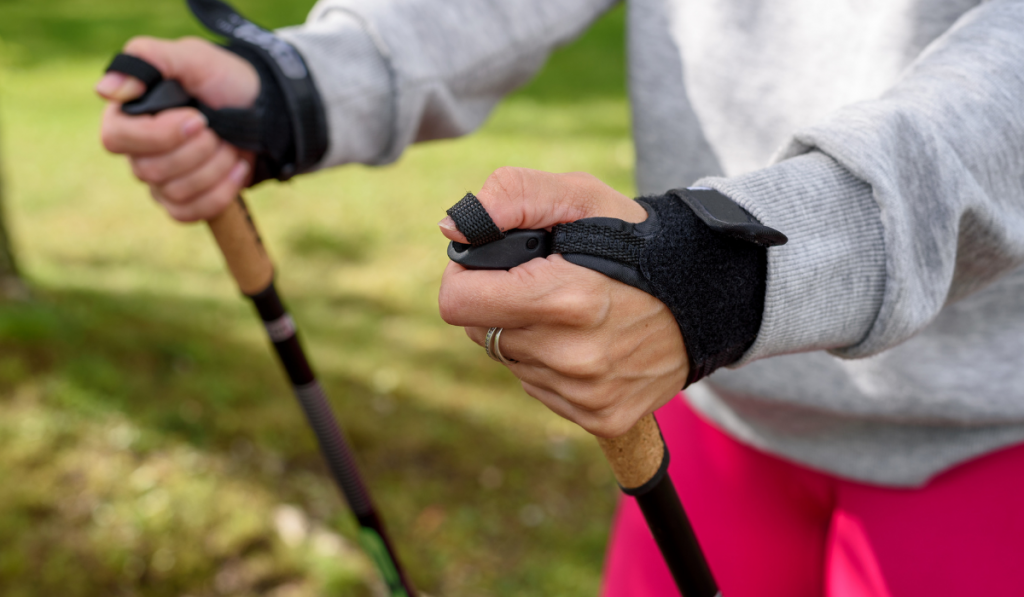
Moving around on outdoor trails can be tricky. You’re constantly maneuvering around rocks, over logs, and watching out for wet spots.
Hiking, for anyone, is a recipe for trips and scrapes. For larger hikers, a fall can be much more severe.
Trekking poles are terrific for people who aren’t used to hiking uphill or in places with many obstacles. They also help balance your weight.
You’ll see a lot of older folks out hiking or backpacking with trekking poles because they relieve pressure on joints and help prevent falls.
Not every backpacking trip is going to require you to bring your trekking poles along, but you’ll be glad you did on the longer or more challenging trips.
Hiking Boots
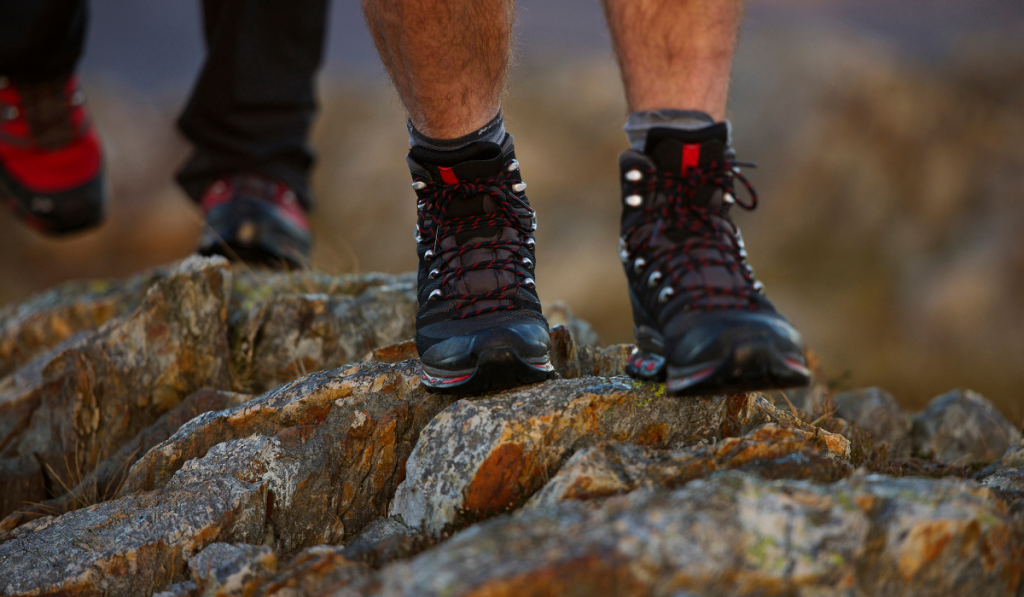
Perhaps the most critical piece of backpacking gear is the hiking boot.
These days, there is a wide variety of choices regarding boots. Companies are making boots for different terrain, temperatures, and foot shapes.
Your feet need to stay dry, cool, and pain-free for you to keep hiking on the trail. If you start developing blisters or something like athlete’s foot when you sweat, you’re probably going to sideline yourself until you heal up.
For plus-sized hikers, you should stick to wide sizes that give you a solid base but, at the same time, are relatively breathable. Merrell’s Moab line of hiking shoes is a fantastic choice.
If you’re buying your first pair of hiking boots, go with something in the mid-height range. They’ll give you the flexibility of added stability while staying rather easy to get off and on.
Most important of all, buy something that feels comfortable.
Your foot should feel secure but not trapped.
Read reviews online or go to a specialty store to try them on.
Keep in mind whether you have high arches or no arches at all. It will make a big difference in finding the perfect boot for your trips.
Sandals or Crocs
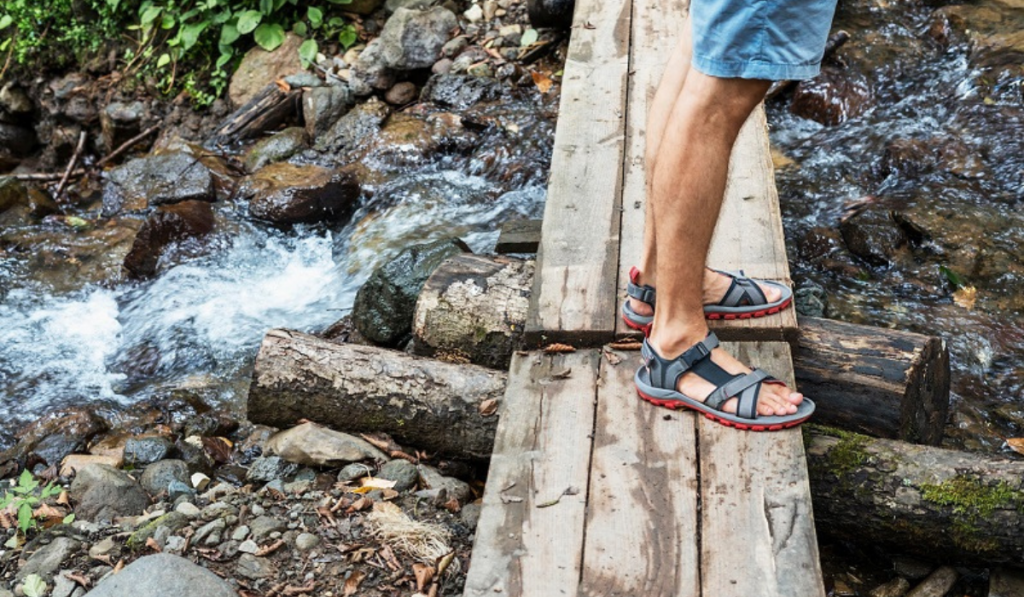
Any hiker knows the joy of shedding their boots off their feet after a long day of backpacking. But, of course, you’ll love it too, so you need a pair of sandals or Crocs for when you’re not hiking.
Many backpackers who go on long overnights prefer Crocs because they’re lightweight, waterproof, and comfy. They also provide decent protection because they cover your whole foot as well.
If you’re not into Crocs, you can buy some sandals from companies like TEVA or get some Chacos.
Sandals or Crocs are great because you can simply hang them on your backpack and keep moving. They won’t take up valuable space in your bag.
The Backpack
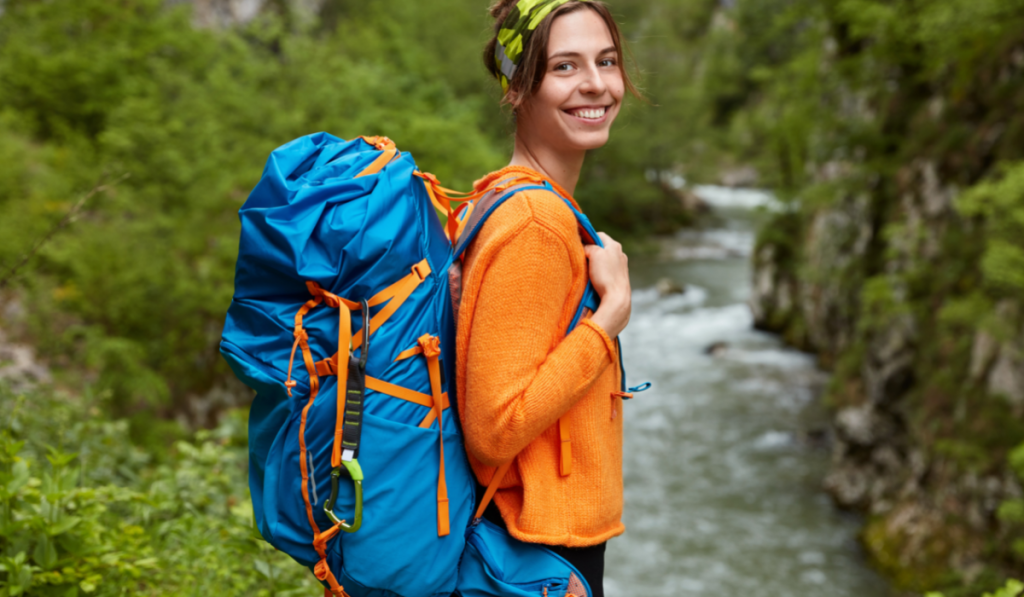
The backpack you choose is right up there with picking your hiking boots in terms of performance.
You might not think adding four pounds is a big deal when you find a cool bag in a color you like. However, those four pounds will feel like a hundred when you’re eight miles into a 15-mile day.
There is, unfortunately, no perfect backpack. There are always compromises between weight, compartments, size, and versatility.
It’s up to you to find what works best. For plus-sized hikers, it can be an even bigger challenge.
Remember, some of the stuff you put in the bag will be bigger than your typical hiker gear. Your clothes will take up more space, so you need to be extra conscious of everything you take.
When buying a backpack, here are some things to keep in mind:
Check the Waist Belt
Some plus-sized hikers complain that the waist belt won’t close on the backpacks that they try.
Female hikers note some success in switching out the female waist belt for the male option. Companies will typically offer larger sizes in men’s bags.
Some companies also offer waist belt extension options, or you might want to try looking online for a waist belt extender that fits with your bag model.
Size
When it comes to size, it’s going to depend on what you need and how long you need it. Here is a good rule of thumb based on trip length:
- Day Trip – A 15-liter bag
- Weekend Trip – Anywhere from 35-50 liters
- Long-Term Excursion – 50-60 liters
Many hikers going on multi-day trips end up settling right around 55 liters.
Material
If you want to manage weight and get something lighter, be prepared to pay for it. Modern bags are amazing with how little they weigh compared to your everyday bag.
However, a good top-of-the-line backpack can cost you several hundred dollars.
Performance Clothing
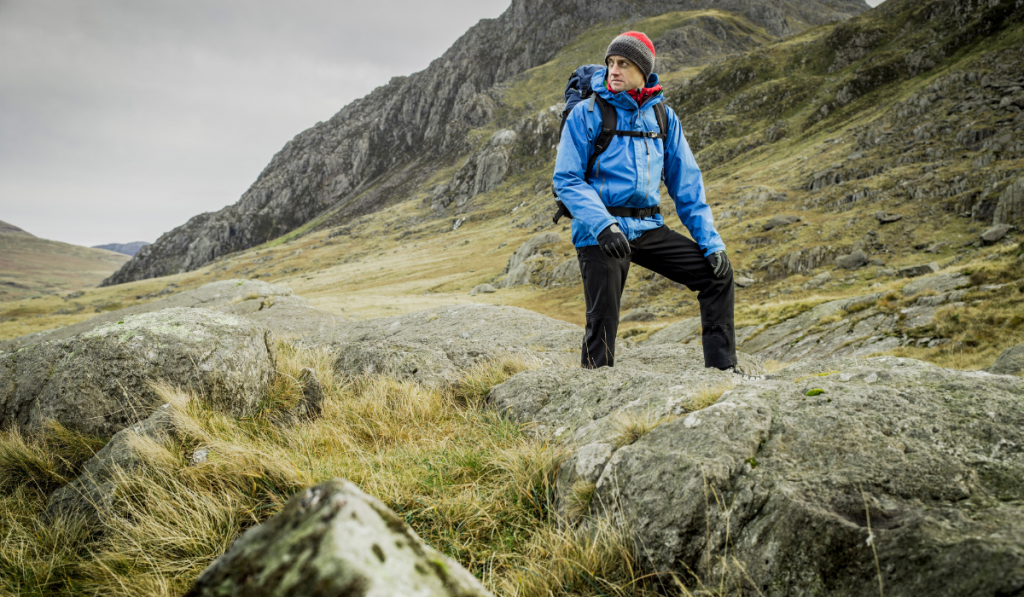
Backpackers need high-performance clothing to stay dry and maintain a healthy body temperate in different environments.
For plus-size packers, this can be a big challenge. Sweat often finds its way all over your body, leading to unpleasant rashes and fungal infections.
If you want to stay clean and healthy, you need clothing that’s up to the task. Unfortunately, clothes shopping isn’t always easy in larger sizes, but some companies are expanding their offerings to meet market demand from larger hikers.
Eddie Bauer, Torrid, and Columbia are three great choices for backpacking clothing.
For example, Columbia has extended sizes for a lot of their performance clothes that go up to 3XL. It’s a good start but doesn’t cover everyone at every size yet.
One good thing about hiking clothes is that you won’t need a lot of them. When you’re on the trail, you’ll be wearing a lot of the same outfits day in and day out. So you can hang them to dry at night and put them right back on in the morning.
So, you should feel like spending more to buy something nicer that will last on all your trips.
But, again, some plus-sized female hikers say they had better luck buying things like hiking pants and jackets in men’s lines. They are not great when it comes to style and color options, but they’ll fit better.
Your Sleeping Gear
The big question around sleeping gear typically revolves around whether you need a tent and a mattress pad or if you can get by just using a sleeping bag.
Of course, it all comes down to personal preference, but it’s a big choice if you’re hiking the Appalachian Trail or something long like that.
Any extra gear you bring will weigh more, but some people like to feel comfortable and secure while they sleep. So here are some things to think about when buying sleeping gear for outdoor backpacking.
The Sleeping Bag
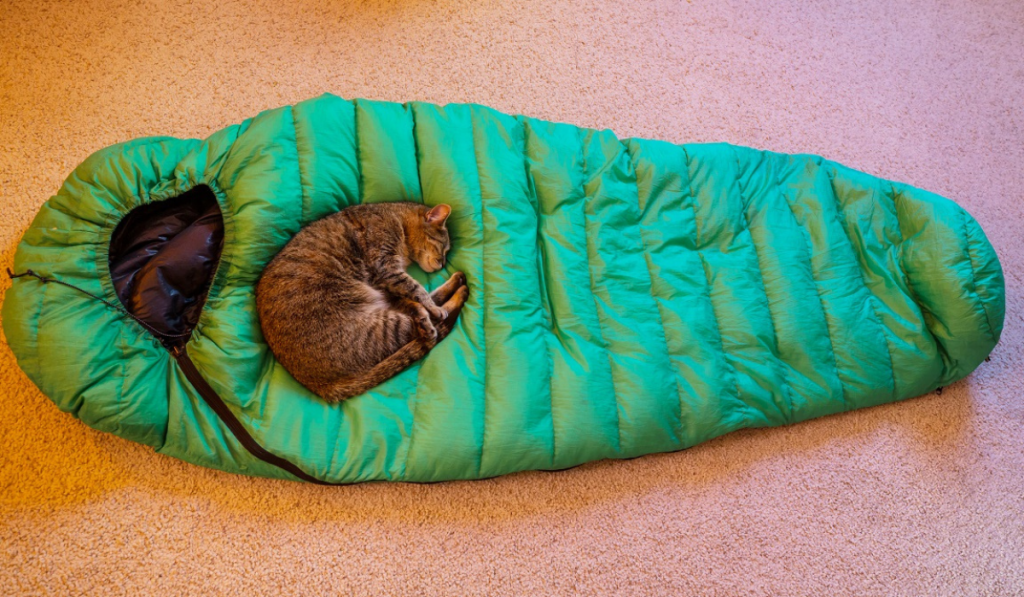
If possible, try to get a mix of comfort and weight in a thermal sleeping bag.
Mummy bags at stores like REI are a good place to start. They’re very popular on the trail and come in many different brands like Marmot, Columbia, etc.
The best advice we can give is to go to the store and get in the sleeping bag before you buy anything. You’ll want to know how much room you’ll have to move around and whether you’ll fit.
Sleeping Pads
Now some good foldable sleeping pads take up much less space than any inflatable or roll-up sleeping mattress. Taking a sleeping pad with you will help you avoid waking up with a stiff back.
But, again, try before you buy, or at least before your trip.
A lot of these pads are designed for smaller people, so you may find that you’re half-on and half-off when it’s time to go to bed after a long day.
Conclusion
Passionate backpackers tend to be very serious about the gear they use. They’re constantly evaluating and re-evaluating everything that makes it into their back or on their body.
For plus-sized backpackers, the challenge of finding the perfect gear is even more intense. However, when you find that perfect item that fits your needs, it will make being outdoors so much more fun!
